
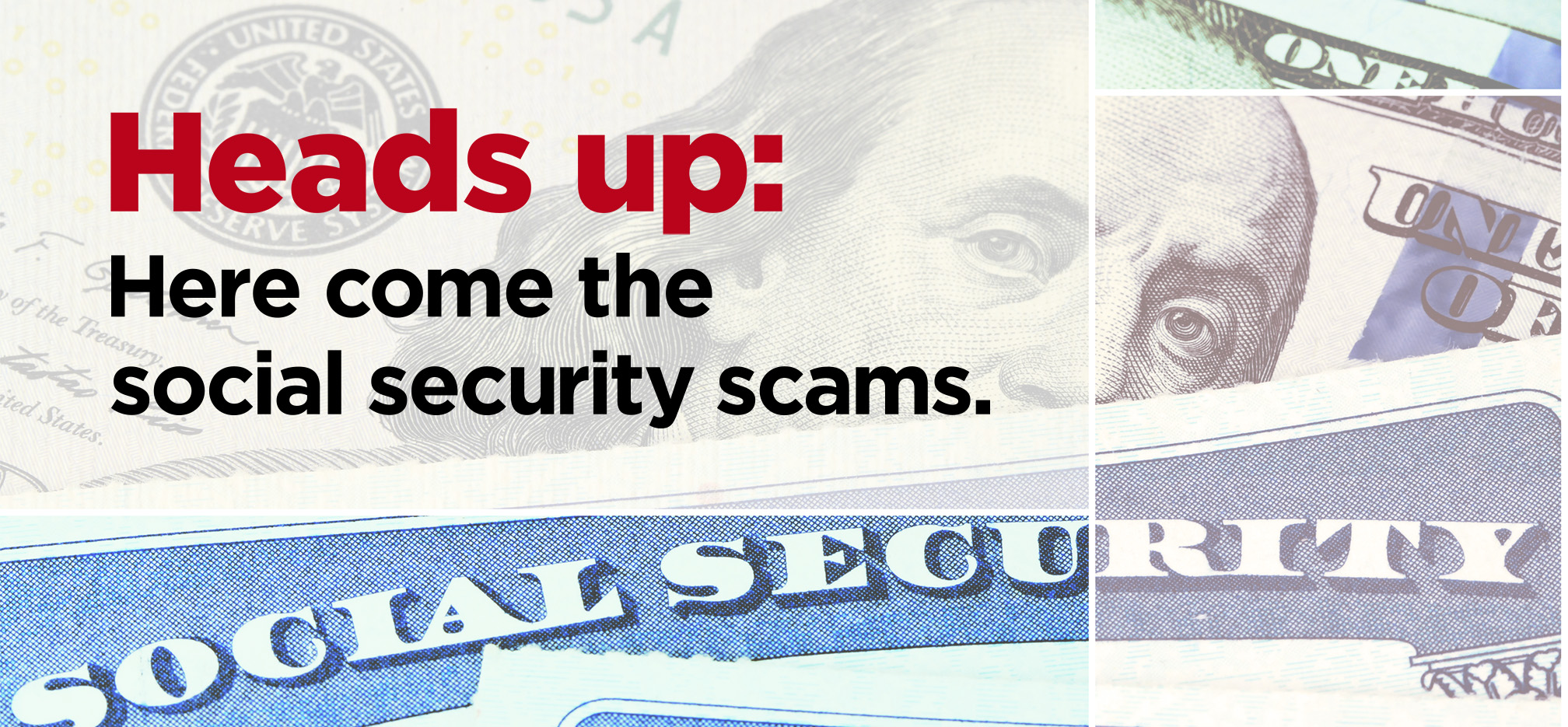
Cybersecurity News You Can Use
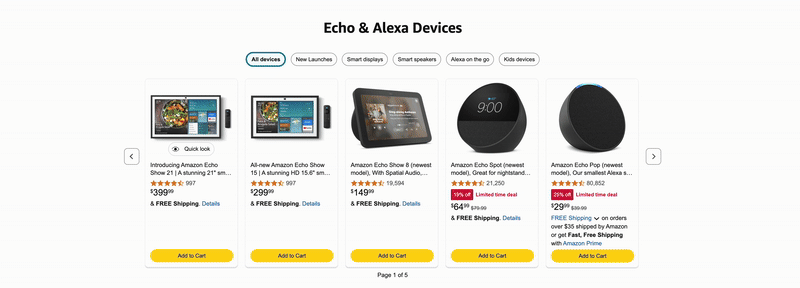
I CAN HEAR YOU NOW: This month, Amazon is rolling out Alexa+, a paid upgrade with AI features. As a result, users must now choose whether to allow Amazon to store and access all of a user’s voice recordings on its servers or lose key features like Voice ID. Alexa requests will now be sent to Amazon’s cloud, where they will be stored and analyzed—even if a user previously opted out.
Ars Technica says this shift raises privacy concerns, especially given Amazon’s history of mismanaging recordings and allowing employee access.
Should Alexa users pay attention to this news? CNET says yes.
With these changes, your voice commands aren’t just going to Alexa — they’re going to Amazon. In the past, Amazon employees and contractors have listened to user recordings. Your voice data could now be used to train AI, sold with company assets, or even used in legal cases. Alexa’s future apparently hinges on Amazon’s ability to make a profit this way, even at the expense of user privacy.
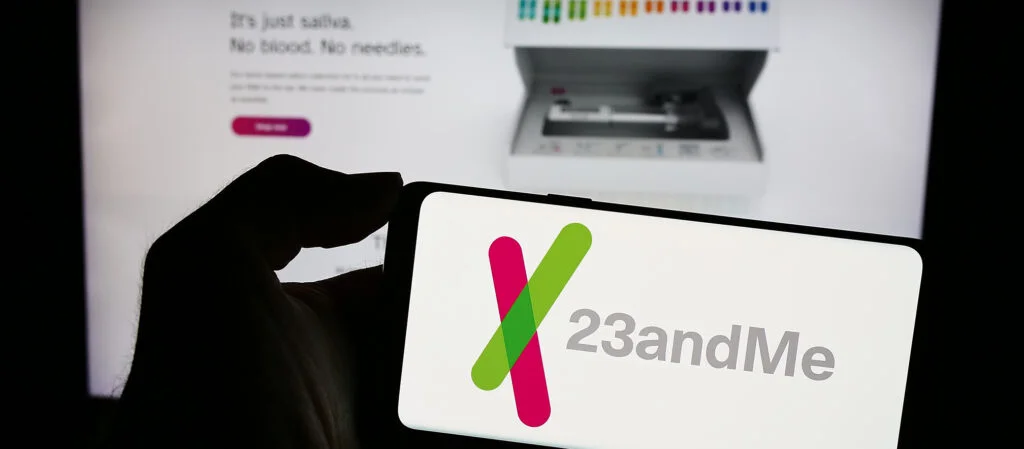
23 AND YOU: Now that DNA-testing company 23andMe has filed for bankruptcy, some users are having trouble logging in and deleting their data — or the data of a deceased family member. According to The Wall Street Journal, there are concerns about whether users will even receive confirmation that their data has been permanently deleted.
To delete your data, log in to your 23andMe account and follow these steps.
Before starting the deletion process, be sure to download anything you want to keep.
- Go to Settings > 23andMe Data > View > Delete Data > Permanently Delete, then ask them to confirm via email.
- To request the destruction of your stored DNA sample, go to Settings > Preferences.
Here are the risks of not deleting your genetic data, per the Electronic Frontier Foundation:
- If 23andMe is sold, your data could go to a new owner with different privacy standards.
- Your DNA is permanent—if it’s leaked or misused, there’s no undoing it, and it may also expose your relatives.
- Genetic data is highly valuable. Even if you previously gave consent, future owners may use or sell it in ways you didn’t authorize.
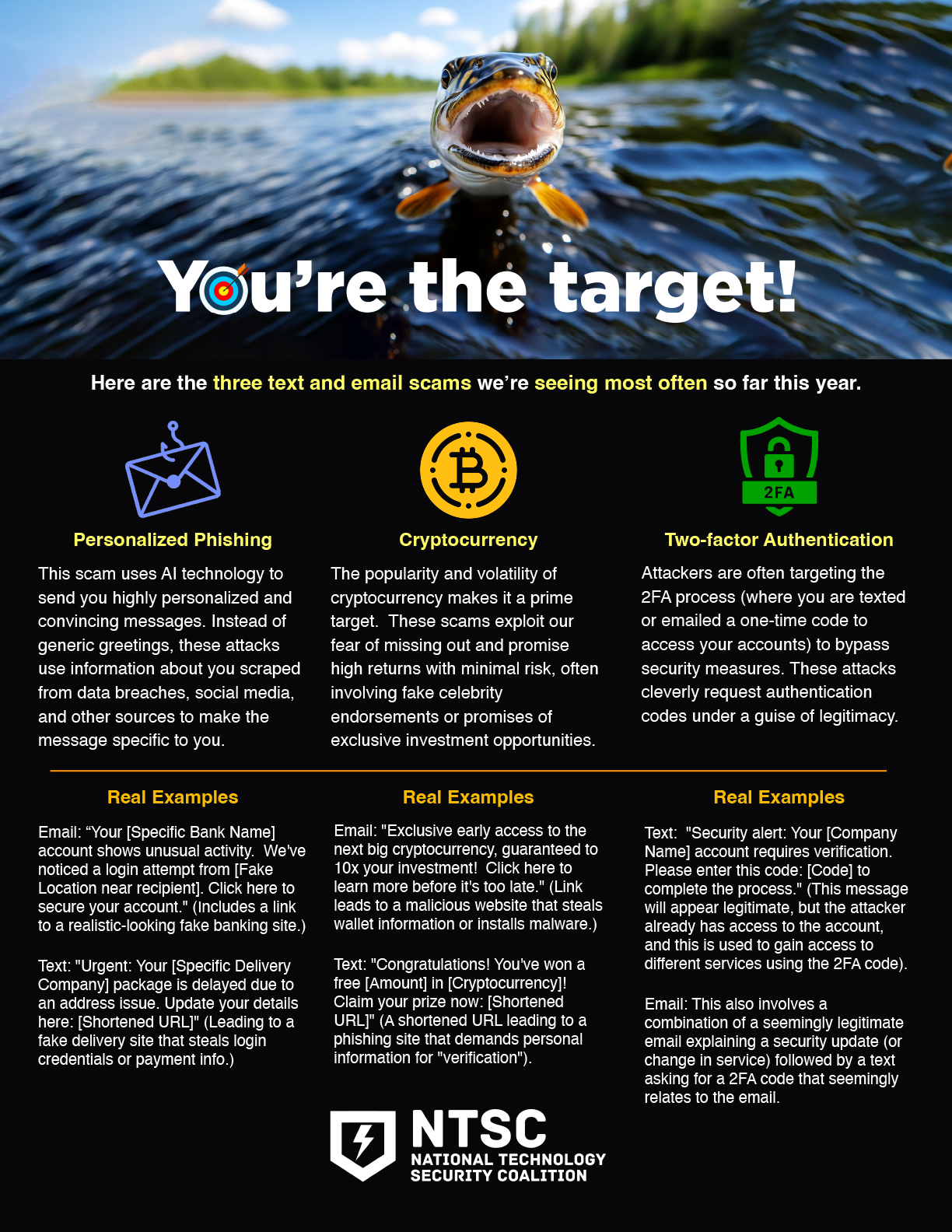

Is this Social Security email a scam?
Have a look at this email that appears to come
from the U.S. Social Security Administration.
But did it really?
Slide the red bar below from right to left to see if this is a scam.
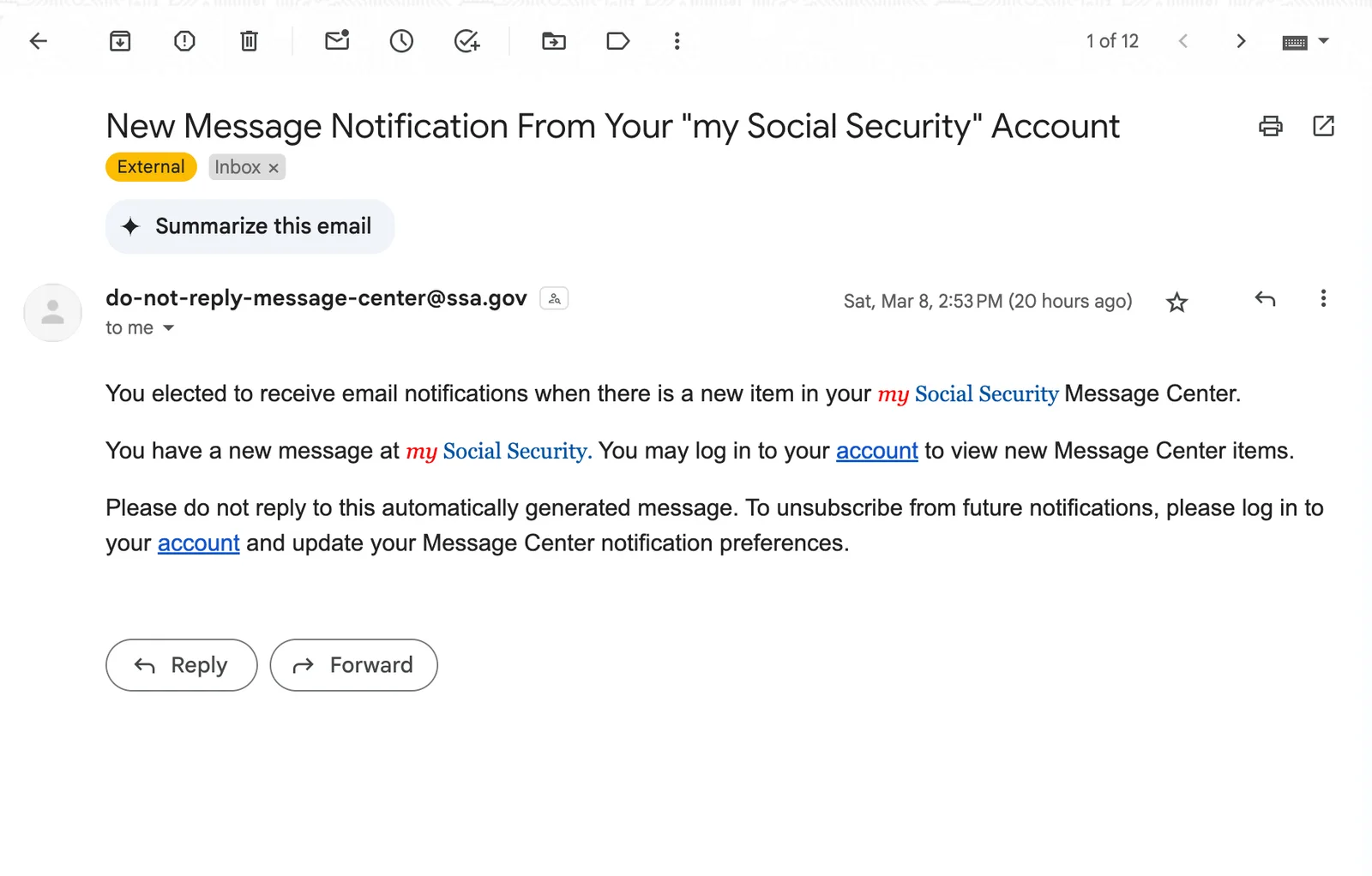
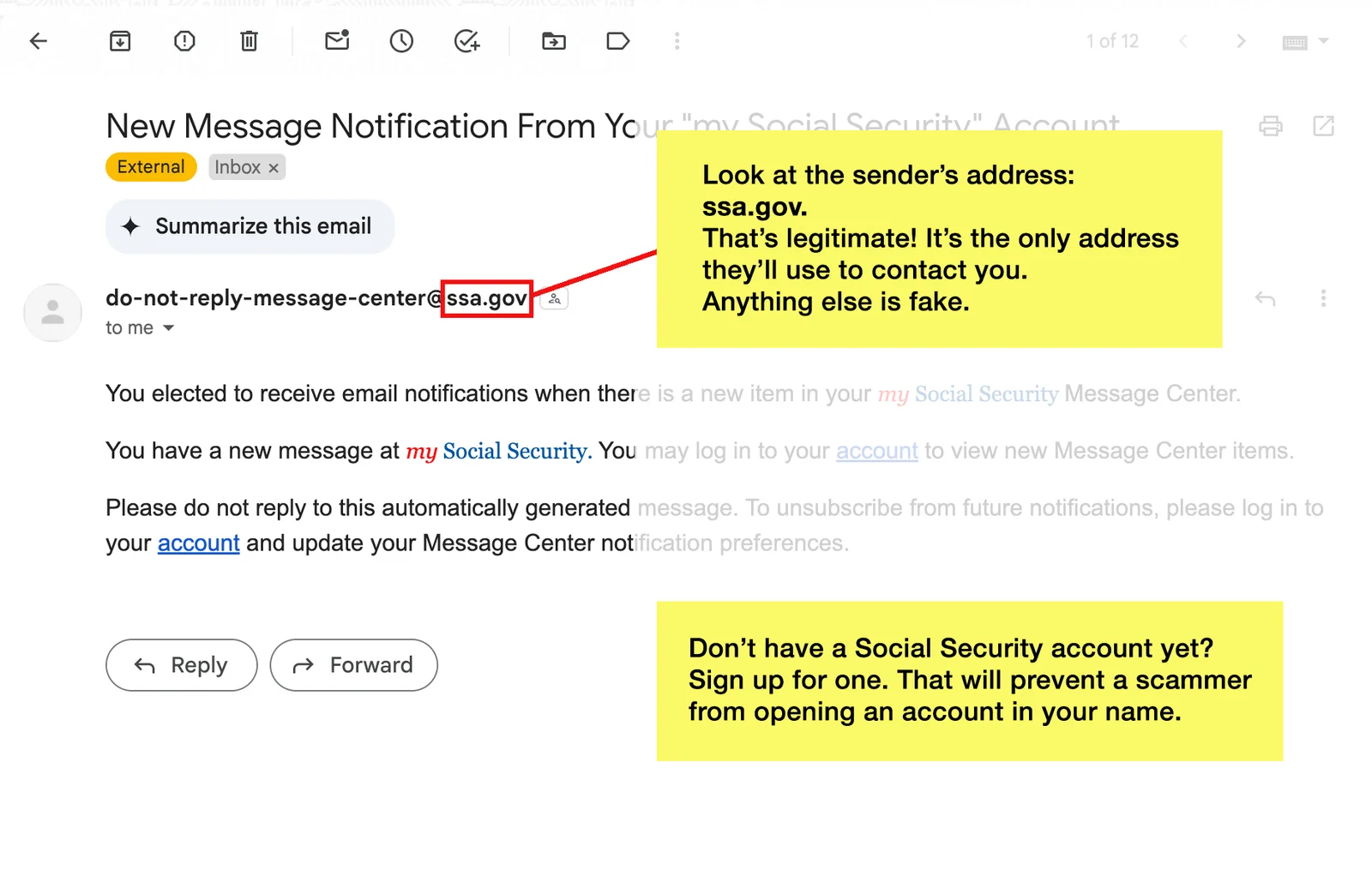
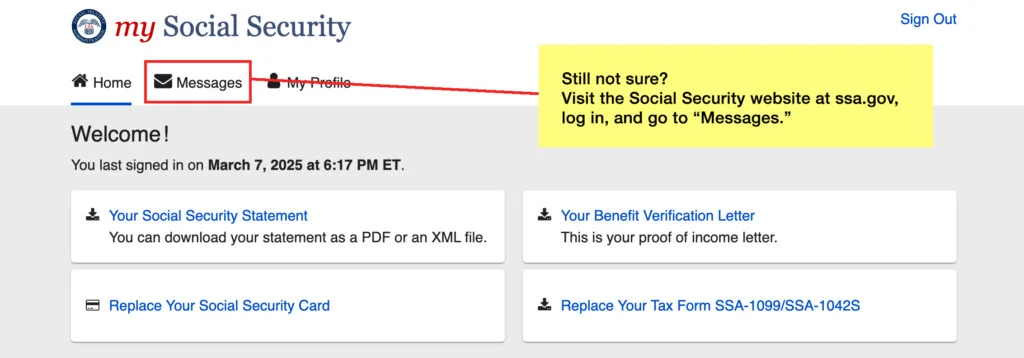
One more thing...
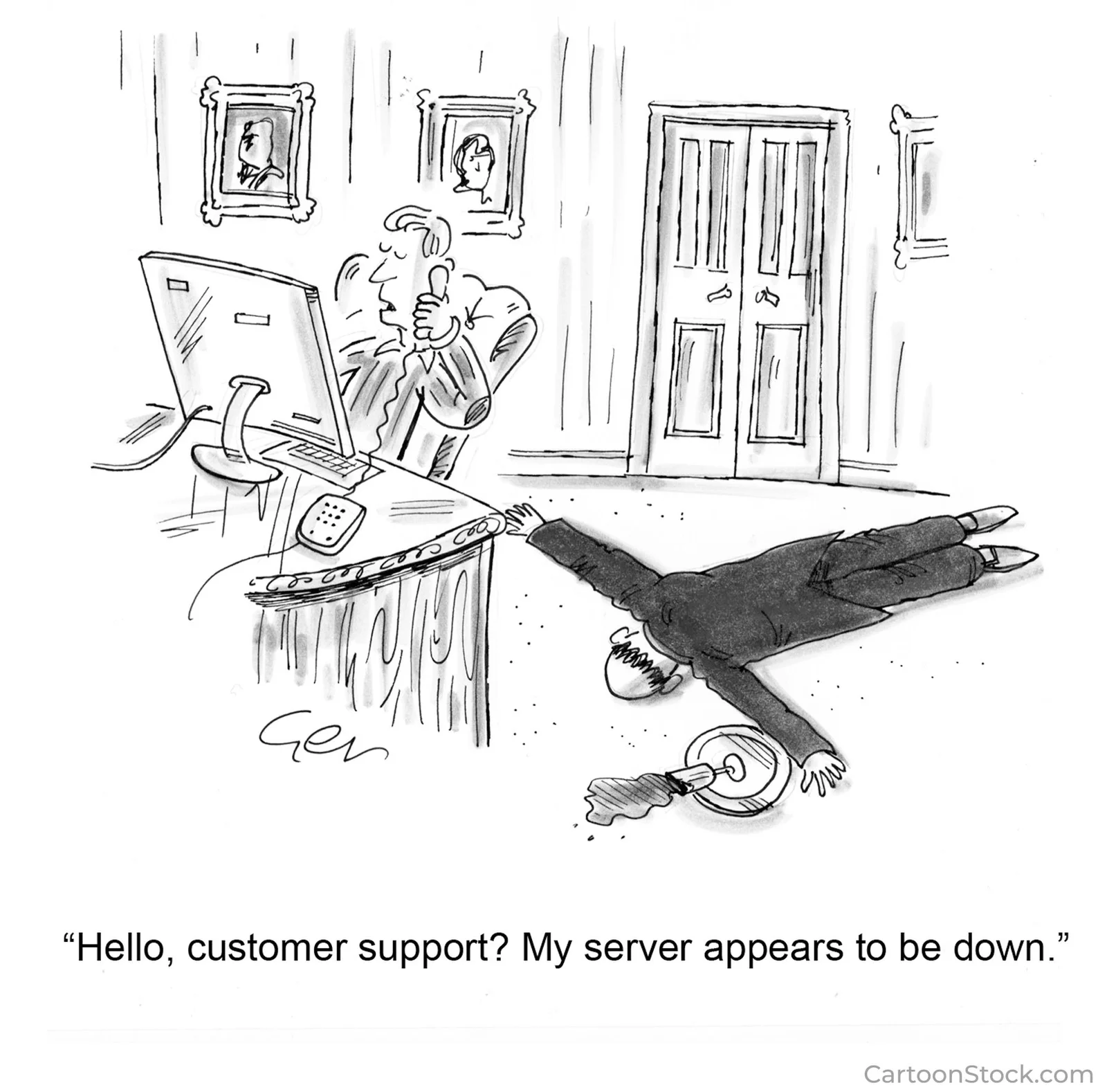
Answers to Your
Cybersecurity Questions
“As technology evolves, is absolute data privacy achievable, or are we just managing a false sense of security?”
Great question! Total privacy isn’t fully attainable, even if you don’t use a computer. But what you can do is lower your risk of becoming a victim of cybercrime.
Think of it like locking your doors: it won’t make your house completely burglar-proof, but it will make you a less easy target. Small steps add up.
Here are a few key things you can do:
- Use long, unique passwords for each of your accounts
- Turn on two-factor authentication (so you’ll need a code sent to your phone or email to log in)
- Be careful what you share on social media—especially about yourself or your family
You’re not aiming for perfect security — you’re aiming to be thoughtful, cautious, and harder to hack.
“On the news, I keep hearing about ‘Signal.’ What is it, and is it safe?”
Signal is a messaging app for texting, group chats, and voice or video calls. Like WhatsApp or Facebook Messenger, it uses end-to-end encryption, which means only the people in the conversation can read or hear what’s being shared.
What sets Signal apart is that it doesn’t collect any personal data. All your messages, contacts, and info stay on your device, not Signal’s servers.
That focus on privacy is why cybersecurity experts and journalists often use Signal. Even the BBC has highlighted its strong security features. However, for top-secret national security conversations, Signal isn’t considered secure enough—those require highly specialized tools.
“When I send an email, can other people intercept and read it?”
Yes, in some cases, your personal email can be intercepted, especially if you’re using a free or outdated email app or accessing the internet over public Wi-Fi.
But the good news is with the right tools and habits, you can make your email more secure.
CNET recommends using an email service like Outlook, Gmail, Apple Mail, or the highly secure Proton Mail service for secure personal communications.
Also:
- Turn on two-factor authentication to help protect your account from hackers
- Never send sensitive information — like Social Security numbers, bank details, or passwords — over email
With these precautions, you can reduce the risk of someone intercepting your emails.
Cyber cartoon © 2025 Cartoonstock | Original content © 2025 Aware Force LLC
